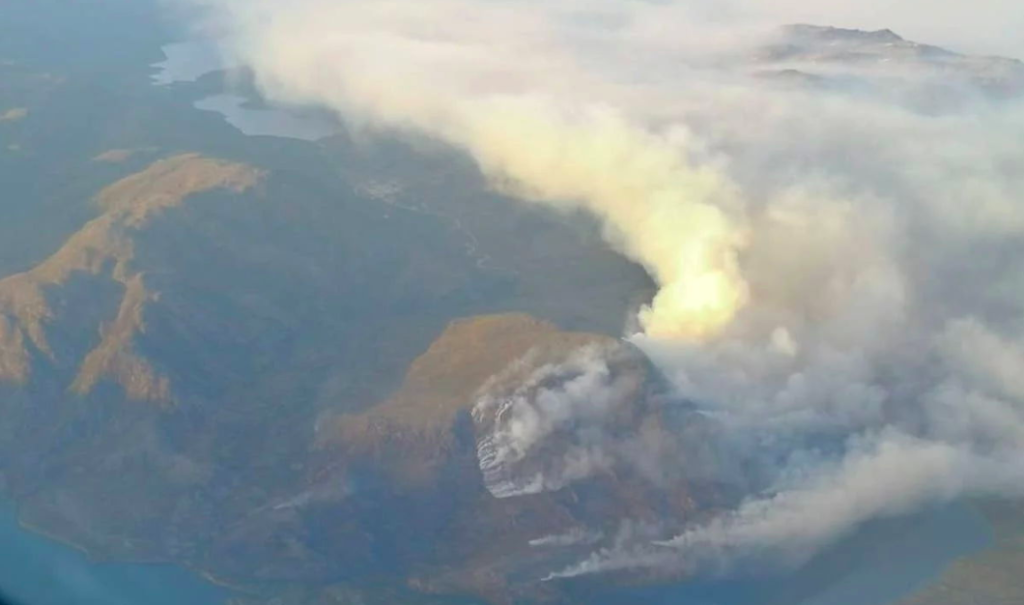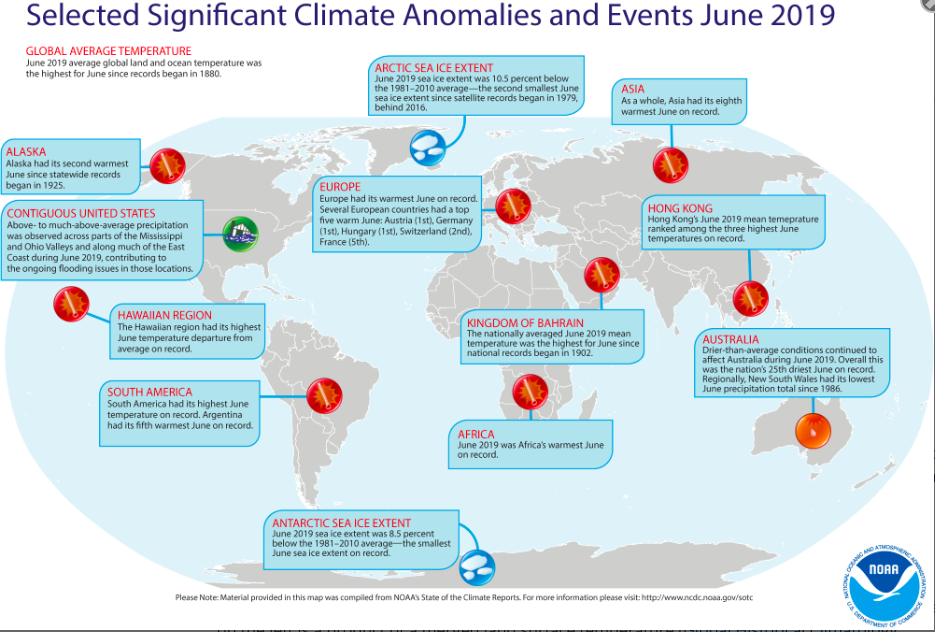
Photo of fire near Arctic Circle Trail in Greenland Photo: Arctic News
The U.S. heatwave over the weekend (and it was hot — New York and Boston both set high temp records on Saturday) overshadowed some disturbing new photos that emerged late last week of vast fires in Siberia due to dried out swaths of peatland (aka bogs or swamps) that are usually frozen and soggy at this time of year, as well as a very rare outbreak of wildfires in Western Greenland. And the National Oceanic and Atmospheric Administration (NOAA) reported that June was the hottest ever recorded globally (in 140 years of measurement), beating the previous record set in 2016, with 9 of the 10 warmest Junes taking place since 2010.
Why This Matters: We know this warming is caused by greenhouse gas pollution which is in turn caused by humans, and we know we need to do something about it. We also know that there are real health risks and economic impacts associated with the heat and warming temps generally being experienced during the winter and summer months, in addition to the devastating environmental consequences like fires and melting glaciers. The Wall Street Journal reported that over the weekend, calls for emergency medical services in New York City because of the heat spiked, peaking significantly above normal levels. All this begs the question, why are we not trying harder to save ourselves? Are we now numb to these urgent new stories? As one climate commentator in the Guardian recently put it, “we’re stuck in a climate disaster movie – and it’s not even a very good one. The threat is complex and can feel remote, but we’re told the chances of survival are slim.” Would changing the narrative help? Maybe. It is hard to know for sure because the news is what it is, and cannot be sugar-coated.
How Hot Was June?
Here are some of the key statistics according to NOAA:
- “Averaged as a whole, the June 2019 global land and ocean temperature departure from average was the highest for June since global records began in 1880 at +0.95°C (+1.71°F). This value bested the previous record set in 2016 by 0.02°C (0.04°F).”
- “June 1998 is the only value from the previous century among the 10 warmest Junes on record, and it is currently ranked as the eighth warmest June on record. Junes 2015, 2016, and 2019 are the only Junes that have a global land and ocean temperature departure from average above +0.90°C (+1.62°F).”
- “During the year-to-date, the most notable warm temperature departures from average were present across parts of the Northern Hemisphere, specifically Alaska, western Canada, and central Russia, where temperature departures from average were +3.0°C (+5.4°F) or higher.”
- “[C]ooler-than-average conditions were limited to parts of western Asia, Indonesia, across small areas in the Atlantic and North Pacific oceans, as well as the south-central contiguous United States.”
Fires Burning Like Wild in The Arctic
- According to Europe’s Copernicus Atmosphere Monitoring Service (CAMS), there have been at least 100 “intense and long-lived wildfires” above the Arctic Circle since June, The Washington Post reported, and these fires collectively emitted as much carbon dioxide as the country of Sweden’s total annual emissions.
- Scientists at Copernicus commented that the duration, northern latitude and intensity of the fires make them atypical of what is seen in this region during the summer.

July 21, 2019 » climate change, global, greenhouse gas emissions, heat wave, record high temperature, wildfires

